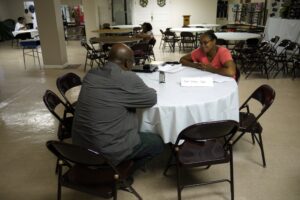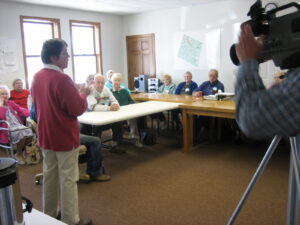Historical Laboratory Projects
The House of Oral History – Culp
What are the Origins of Oral History?
Oral History has been around as long as people have existed to be able to tell stories that they wanted remembered. The ideas in myths can be found in societies and cultures around the world. These myths were used to tell important stories to a new generation about their culture so they can pass it on to their next generation to keep the stories alive for generations to come. Oral History was around long before Historical Empiricism became the way historians recorded history,

before the idea that physical evidence was the best way to record events for corroboration and posterity. However empirical evidence became the professional way to study history, so Oral History fell out of style, but Anthropologists still recorded oral traditions and customs until the twentieth century when Allan Nevis brought Oral History back into the equation in the 1940s.[1][2]
Oral History was seen as a way to highlight the people that empirical history had left behind. To tell the stories of people overlooked, for example, the working class, women, or ethnic minorities. When Oral Histories came back into style in the twentieth century among conventional historians, the methods used for gathering the data were approached by using a systematic interview process of people who lived through a historic event.

However, some historians claim that these histories were likely to have a bias from the interviewee, and that memory and motives could not be trusted. It was thought that memories were unreliable and subjective.[3][4]
- Anna Green, Kathleen Troup. The Houses of History: A Critical Reader in History and Theory, Second Edition. Manchester: Manchester University Press 1999, 2016. Play Books. ↵
- Photo on Right: Baltimore Heritage, Recording Oral History, 25 September 2010. Accessed 17 April 2023. https://www.flickr.com/photos/baltimoreheritage/5073880352/in/photostream/ ↵
- Sarah Maza, Thinking About History. Chicago and London: The University of Chicago Press. 2017. Play Books. ↵
- Photo on Left: Photo by Jessamyn West, Calef Library; Washington. Oral History Project, taken on October 16, 2006, Accessed April 17, 2023. https://www.flickr.com/photos/iamthebestartist/271726984 ↵
